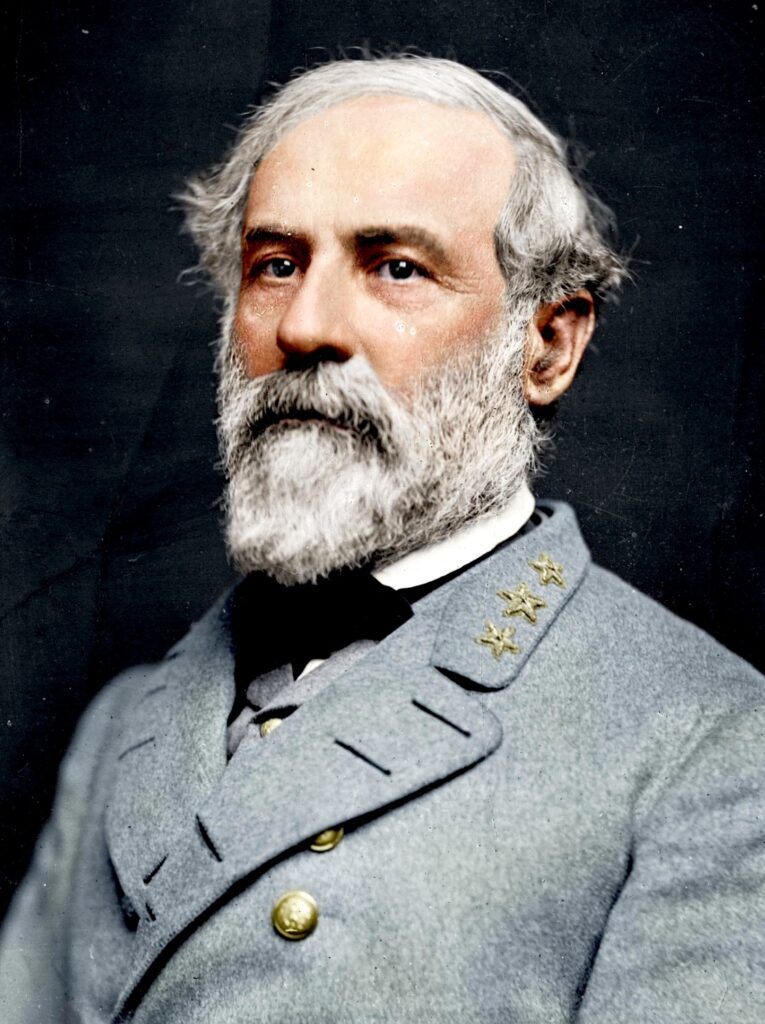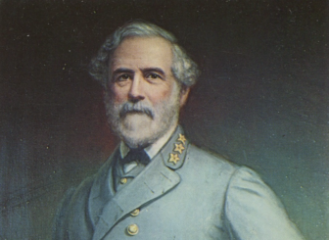Robert E. Lee, renowned for his leadership in the American Civil War, faced a significant decline in health during his later years. His health struggles and ultimate passing marked a poignant chapter in American history, shaping perceptions of the war’s key figures.
Following the Civil War’s end in 1865, Lee navigated a difficult post-war landscape, striving to rebuild a fractured South while shouldering the weight of his own health issues. Despite his stature as a revered figure in the South, he grappled with various health challenges, notably heart problems and other ailments that progressively impacted his well-being.
Health Struggles
Lee grappled with a series of health issues that cast a long shadow over his life. Lee suffered from heart problems and other ailments, which gradually sapped his strength and vitality.

Photo: Thure de Thulstrup – L. Prang and Co / Wikimedia Commons
The General Probably Suffered A Heart Attack At Gettysburg
Robert E. Lee didn’t realize that he had a major cardiac condition while he was living his life, as many people do in today’s world. By spring 1863, he was sixty-six years old and in poor health. He was experiencing pain in his chest, back, and arms. His physicians suggested that he probably had pericarditis, a condition in which the thin membrane that surrounds the heart swells and becomes irritated. Lee was advised to rest (a difficult task when commanding an army). He left camp for a few weeks to live quietly in Fredericksburg, Virginia, but he didn’t seem to improve much.
Doctors now think Lee had either suffered or would suffer a heart attack by the time of the Gettysburg combat in July 1863. There is no medical record indicating that he ever suffered a heart attack, but he was feeling quite ill throughout that conflict and, a few weeks later, offered his resignation, citing acute exhaustion. Because the Confederate leadership refused to accept his resignation, he remained in office until the end of the war. His heart problems eventually caught up with him five years later. On September 28, 1870, he suffered a stroke and died on October 12, the same year.

The Final Days
In the fall of 1870, Lee’s health took a severe turn for the worse. Late in September of that year, he experienced a debilitating stroke that left him incapacitated. His condition steadily deteriorated, leaving him bedridden and unable to fulfill his daily responsibilities.
In the autumn of 1870, while serving as president of Washington College, Lee regularly experienced fatigue, shortness of breath with exertion, and chest pains. His previous diagnoses included “rheumatism” and “pericardial inflammation”.
On the evening of September 28, 1870, Robert Edward Lee suffered a stroke. He died two weeks later at the age of 63 ending one of the most storied lives in American history.
Day of Stroke
On September 28, Lee stood to say grace before supper and opened his mouth but no words came out. As he sat back in his chair, he bowed down, looking very strange and speaking incoherently. His doctors noted neither paralysis or apoplexy but diagnosed “venous congestion of the brain” as a result of “cerebral exhaustion.”
In the days that followed, witnesses reported that “his lips never uttered a sound!” He mostly used shaking his head or nodding to communicate. He was given bed rest, turpentine, strychnine, and morphine as treatments.
Robert E. Lee’s Death
The morning of October 12, he developed a “feeble, rapid pulse” and “shallow breathing.” Lee’s reported last words were, “Tell Hill he must come up!” “Strike the tent!” Yet, his daughter at the bedside recalled ‘only struggling with long, hard breathes, and in a moment he was dead.’
Medical conclusion
Lee suffered chronic angina and congestive heart failure, with a probable myocardial infarction during the war. His death stemmed from an acute, possibly cardioembolic stroke manifesting as expressive aphasia, and subsequent respiratory complications. Given his aphasia, Lee’s famous last words are questionable.
The declining health and eventual death of Robert E. Lee were defining chapters in the life of this celebrated Confederate General and post war a great assimilator role model. His struggle with health issues in the post-war years was a poignant backdrop to his eventual passing. While the legacy of Robert E. Lee continues to be a topic of debate and historical inquiry, his health deterioration and death remind us of the personal challenges he faced in the aftermath of a tumultuous era in American history.
Robert E. Lee’s death marked the end of an era in the United States, as well as in his personal life. It was a somber moment for those who had admired his leadership during the Civil War and the prominent role he played in American history.




